80 F. average high on August 18.
67 F. high on August 18, 2015.
August 19, 2007: Record 24-hour maximum rainfall of 15.10 inches set in Hokah, MN (Houston county). This 24-hour total contributed to the record monthly maximum rainfall of 23.86 inches that was set in Hokah during August of 2007.
August 19, 1980: Strong winds at Belle Plaine severely damage five planes.
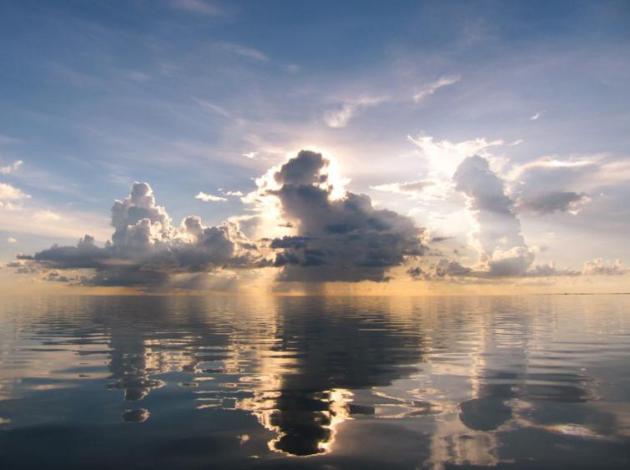
Puddles into Saturday - We Should Salvage a Nice Sunday
"Predicting rain doesn't count. Building arks does" mused billionaire uber-investor Warren Buffett. I'm still ark-free, but moss is forming on my northern side and I think I'm growing an umbrella.
This feels like 3 Junes in a row. During a typical August our atmosphere stabilizes, with fewer storms, leading to pockets of drought. Not this summer. Minnesota is teetering on the northern fringe of a sprawling heat dome; wave after wave of stormy weather rippling along the northern periphery of this temperature gradient - each one accompanied by another slug of rain.
A wave of low pressure rippling along an approaching cool front may squeeze out another 1-3 inches of rain by Saturday night. Have a Plan B (indoors) tomorrow with leaky clouds, 60s and a stiff north wind. Sunday will be better as a weak ridge of high pressure treats us to sunshine and 70s. The nicer lake day, by far.
While we whine about a rainy Saturday shell-shocked residents of Louisiana are facing the biggest U.S. weather disaster since Sandy, in 2012. 40,000 homes damaged or destroyed by flooding. Surreal.
Consistent Model Runs: Saturday Soaking. The 00z NAM run prints out nearly 3" of additional rain by late Saturday night. Sustained winds reach 20-30 mph from the northwest late Saturday and Saturday night as temperatures fall through the 60s into the 50s. Perfectly normal for early October. Translation: Saturday will be a lousy lake day - Sunday looks better, brighter and drier, but still on the cool side.
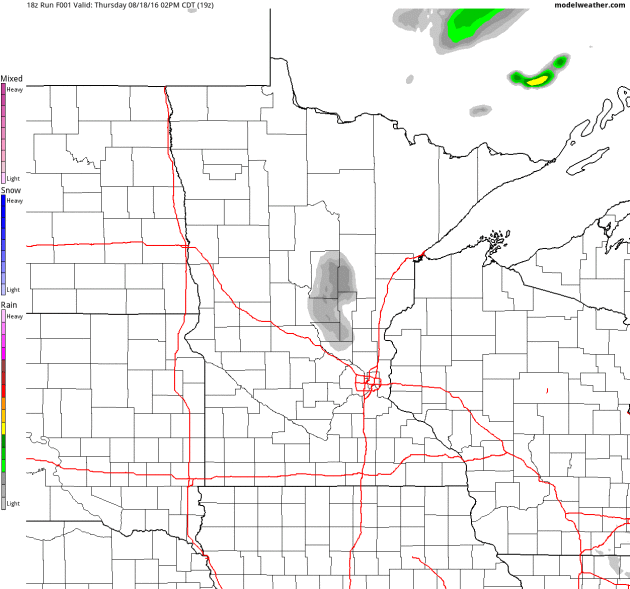
It's Time To Adapt to Megafires. Gizmodo
has an excellent article analyzing fire trends and how we continue to
pay to knock down increasingly pervasive and catastrophic fires: "...Fire
is a natural part of the lifecycle of many ecosystems. But the changes
we’ve seen in the past decade—more fires, hotter fires, larger fires,
weirder fires—are not natural, and they are not going away. As more
people settle at the edge of wildlands, as invasive species transform
ecosystems, and as climate change promotes more exceptionally hot days,
mild winters, and dry summers, our planet is becoming a tinderbox. The
men and women fighting fire understand this. It’s on us to provide them
the tools and resources they need to adapt. “The effects of climate
change are fairly obvious to us as firefighters,” Gray said. “When
you’re used to seeing fire season last four months, and it starts
stretching to eight months, it’s something that’s ever present in your
mind..."
Artwork credit above: Sam Woolley.
Needed in Louisiana as Flood Waters Ebb: 40,000 New Homes.
The level of displacement is amazing, the number of people and homes
impacted - and this is why the American Red Cross has called Lousiana
flooding America's biggest natural disaster since Sandy in 2012. Here's
an excerpt at Christian Science Monitor: "As
the flood water in Louisiana begins to recede, the true extend of the
damage caused by rain storms that dumped more than two feet of water on
Baton Rouge and Lafayette in just two days is becoming clear. With an
estimated 40,000 homes damaged by the deluge, thousands of people have
been displaced from their homes, staying in overflowing shelters, with
relatives and friends, and in trailers. Those with flood insurance will
need places to stay while they rebuild. Those without flood insurance
have the even greater challenge of relocating completely..."
Photo credit: "Megan
Schexnayder and David McNeely (R) sit on the porch of a home surrounded
by floodwaters after heavy rains in Sorrento, Louisiana, on August 17,
2016." Reuters.
Extreme Floods May Be The New Normal. Scientific American explains: "...Over
the past year alone, catastrophic rain events characterized as
once-in-500-year or even once-in-1,000-year events have flooded West
Virginia, Texas, Oklahoma, South Carolina and now Louisiana, sweeping in
billions of dollars of property damage and deaths along with the high
waters. These extreme weather events are forcing many communities to
confront what could signal a new climate change normal. Now many are
asking themselves: Are they doing enough to plan for and to adapt to
large rain events that climate scientists predict will become more
frequent and more intense as global temperatures continue to rise? The
answer in many communities is no, it’s not enough..." (File photo: U.S. Coast Guard).
Hurricanes and Tornadoes Have Them, Is It Time For a Flood Scale? Dr. Marshall Shepherd has food for thought at Forbes: "...Dr. Amanda Schroeder, informed me that their NSF-sponsored SPREAD working group, conceived by Colorado State’s Dr. Russ Schumacher,
recently published a paper proposing a flood severity index. Dr.
Schroeder, a hydrometeorologist with the National Weather Service Fort
Worth, emailed me and said, "I led an interdisciplinary group of young
scientists to develop a flash flood severity scale that goes beyond
confusing return periods and mere historical recollections of past flood
events. This new scale will be applicable across multiple geographic
locations and should provide an easy-to-follow frame of reference for
flood ratings and comparisons"...
File photo: "In this file photo, neighborhoods are flooded with oil and water two weeks after Hurricane Katrina went though New Orleans, September 12, 2005." REUTERS/Carlos Barria.
Mild La Nina?
I suspect much of the Farmer's Almanac winter forecast calling for
severe cold is based on the La Nina cool phase in the Pacific, but the
latest forecasts shohw only slight cooling in the months to come.
Graphic: Earth Institute at Columbia University.
Bitter Winter for Minnesota? Take It With a Grain of (Road) Salt. Here's an excerpt from The Star Tribune: "Minnesota
and much of the rest of the United States are in for an especially
frigid winter, according to the newly released Farmers’ Almanac and its
older rival, which comes out later in August. In its 200th anniversary
edition unveiled Monday, the Farmers’ Almanac said a deep freeze will
grip the Northern Plains, the Great Lakes, the Midwest, the Ohio Valley,
the mid-Atlantic and New England. For a warm winter, head west, said
the folksy, Maine-based publication. A local meteorologist was quick to
call the almanac a curiosity that lacks “scientific validity...” Graphic credit: Farmer’s Almanac
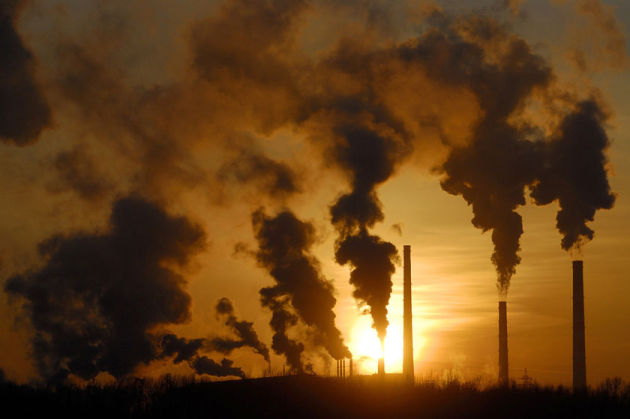
13 Years After Northeast Blackout, U.S. Power Grid Remains Vulnerable. Here's an excerpt from a Wall Street Journal article: "...A coordinated attack on just nine of the nation’s 55,000 electrical substations could cause a blackout across the country, a Federal Energy Regulatory Commission report found in 2014. Through the American Recovery and Reinvestment Act, the Energy Department has spent $4.5 billion over the past few years to modernize the electrical grid. Most of that funding, which was more than matched by private dollars, went to “smart grid” efforts, with a notable focus on energy storage and creating stable power in multiple locations. This is just the beginning of what’s needed for infrastructure nationally if the goal is a decentralized (and, ultimately, renewable) electrical grid that ensures power even under extreme conditions..."
Photo credit: "Cars try to navigate through New York City as the sun sets during a blackout on Aug. 14, 2003." Photo: Associated Press.
Photo credit: "The tundra in Yakutia normally melts to a depth of 30-60cm, but this year it has reached a meter." Rex Features.
Donald Trump's Lack of Respect for Science is Alarming. So says Scientific American; here's a clip from a recent post: "...The
current presidential race, however, is something special. It takes
antiscience to previously unexplored terrain. When the major Republican
candidate for president has tweeted that global warming is a Chinese
plot, threatens to dismantle a climate agreement 20 years in the making
and to eliminate an agency that enforces clean air and water
regulations, and speaks passionately about a link between vaccines and
autism that was utterly discredited years ago, we can only hope that
there is nowhere to go but up..."
Photo credit: "The Lewis Center for Environmental Studies at Oberlin College is a zero-energy building."
Beyond Coal: Imagining Appalachia's Future. Another hopeful article about reinvention from The New York Times: "Here
in the heart of central Appalachian coal country, an economic
experiment is underway inside an airy renovated Coca-Cola bottling
plant. Most days, Michael Harrison, a former mine electrician and “buggy
man” who once drove trucks 700 feet underground, can be found hunched
over a silver laptop, designing websites for clients like the Pikeville tourism board. Mr. Harrison, 36, is one of 10 former mine workers employed at BitSource,
an internet start-up founded by two Pikeville businessmen determined to
prove a point: that with training and encouragement, Kentucky miners
can learn to code..."
Photo credit: "Mountaintop
removal in Virginia as seen from Black Mountain in Kentucky. Pikeville,
Ky., is among the central Appalachian towns working to diversify their
economies as the coal industry fades." Credit George Etheredge for The New York Times
Photo credit: "The Olympic flame burning at Lake Placid in 1980." (Photo: Dan Lundberg/cropped/CC BY-SA 2.0).
TODAY: Showers, possible thunder. Winds: N 8-13. High: 77
FRIDAY NIGHT: Lingering showers. Low: 60
SATURDAY: Gray and unpleasant. Periods of rain, chilling breeze. Winds: NW 10-15. High: 66
SUNDAY: Partly sunny, nicer day of the weekend. Winds: NW 7-12. Wake-up: 55. High: 74
MONDAY: Sunny, breezy and warmer. Winds: S 10-20. Wake-up: 59. High: 83
TUESDAY: Sticky sun, feels like August again. Winds: S 10-20. Wake-up: 66. High: 87
WEDNESDAY: Showers and T-storms likely. Winds: W 10-15. Wake-up: 69. High: 82
THURSDAY: Partly sunny and pleasant. Winds: NW 7-12. Wake-up: 65. High: 81
Climate Stories...
Space, Climate Change, and the Real Meaning of Theory. Here's an excerpt of an excellent essay from Piers Sellers at The New Yorker: "...Climate-change deniers in the United States have done a first-class job in spreading confusion and misinformation. As a result, many prominent politicians insist, and get away with insisting, that climate change is a hoax, a mantra that has gained some credibility through sheer repetition. Climate deniers are also fond of saying that global warming is not resolved in science or is “just” a theory. This is a perfect example of Orwellian Newspeak which also flies in the face of three hundred years of scientific progress, in which intellectual argument and conviction must be based on facts and substantiated theories, rather than personal beliefs or biases. It is also dangerous. If nothing is done to reduce carbon emissions over the next couple of decades, our climate models predict that there will be massive changes in the global precipitation and temperature patterns, with huge effects on water and food security, and dramatic sea-level rise..." (Image credit: NASA).
In a Warming World, Deluges Like Louisiana's Expected to Increase. InsideClimate News has the story: "...The
devastating rainstorm that unleashed terrifying flooding last weekend
in Louisiana, with thousands of people escaping their homes and whole
parishes being overtaken by water, comes in recent succession to
similarly extreme and deadly storms across the country—in Texas,
Maryland, West Virginia and South Carolina. These intense storms have
become seemingly commonplace, raising questions about climate change's
role.
Of the two factors that made Louisiana's storm so devastating, one
(increased moisture in the air) wears the fingerprints of man-made
climate change from mostly fossil-fuel burning, while the other (how
slowly the storm was moving) is not so easily explained..."
Image credit: "Flooding devastated area in Port Vincent, Louisiana along the Amite River southeast of Baton Rouge." Credit: NOAA Remote Sensing Division.
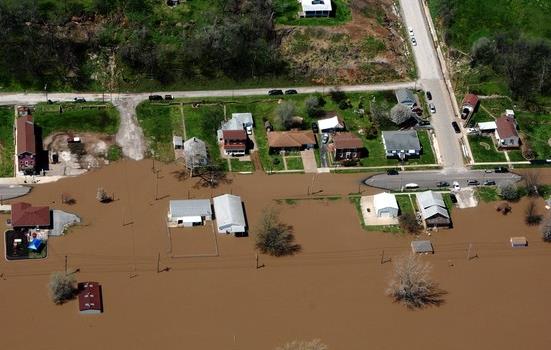
Climate Change Is Going To Bring More Floods Like Louisiana. We're Not Ready. Here's a clip from an analysis at Vox: "...Though
smaller than the devastation wrought by Hurricane Sandy in 2012, this
latest flood reminds us of what a changing climate has in store for us:
Places that have flooded before will flood again, and places that
haven’t in the past will do so for the first time. These disasters are
the new normal — several other states are currently recovering from
disasters of their own. What has become painfully clear is that the
“emergency management system” in the United States does not have the
capacity to address all the needs. The systems we have in place to
mitigate, prepare for, respond to, and recover from these events do not
have the ability to deal with so many disasters at once. We can do
better..."
Photo credit: Reuters/Jonathan Bachman. "A casket is seen floating in flood waters in Ascension Parish, Louisiana, on Aug. 15, 2016."
Photo credit: "Close to two feet of rain fell over a 48-hour period in parts of southern Louisiana, causing residents to scramble to safety from flooded homes and cars." Photograph: John Oubre/AP.
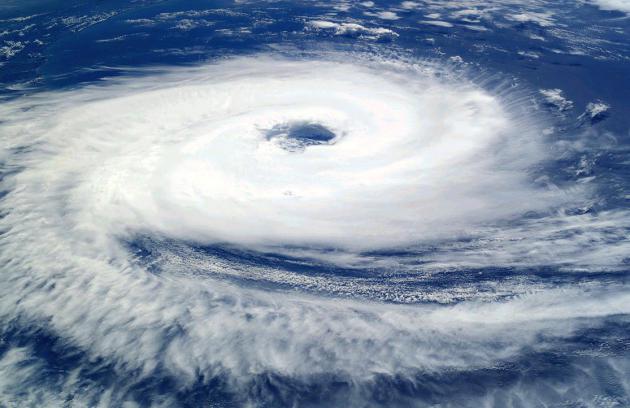
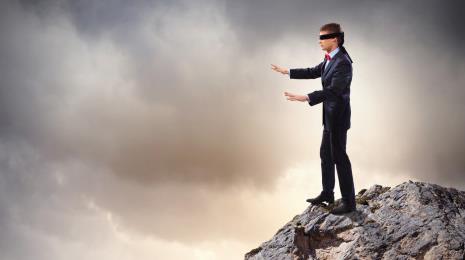
Bracing Ourselves For The Climate Tipping Point. Has that inflection point already arrived? Here's an excerpt of a post from Eric Holthaus at Pacific Standard: "...So,
what does it mean that we’re now in uncharted territory? And have we
already come too far to avoid key planetary tipping points? What hope
should we have that we’ll fix this sooner rather than later? This week,
scientists are gathering in Geneva, Switzerland, in an attempt to
answer these questions. That we’ve reached a new, increasingly urgent
phase of global warming is becoming apparent after a surge of millennial-scale floods, ecosystem collapses, and record-strong cyclones — all within the last year, coinciding with what’s likely to become the warmest year on record. The planet seems at the breaking point, with increasing evidence
that we’ve already locked in additional warming that will take us
further into uncharted territory — assuming we don’t rapidly change
course..." (File photo: Shutterstock).
No comments:
Post a Comment